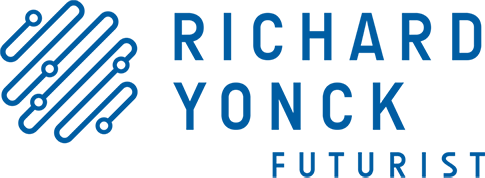Appreciating Our Increasingly Intelligent World

Two years ago, in March 2020, my book Future Minds was published. An exploration of the nature of intelligence in the universe and how this might evolve for us in the future, its release coincided with another far more challenging development, the onset of our most recent pandemic.
While the appearance of the SARS CoV-2 virus and COVID have been tragic and disruptive in the extreme, both at personal and global scales, our response to it highlights the ongoing growth of intelligence in our world. The tools and knowledge that were brought to bear on this threat were nothing short of astounding. Collaborating at an international level never before seen, the political and scientific communities developed interventions and vaccines in record time. Though far from an ideally unified response, because of this, millions, perhaps tens of millions of people are alive today who wouldn’t have been otherwise.
Of the many efforts that were made, perhaps none illustrates this so much as the lightning-fast genetic sequencing of the virus itself. That we were able to do this in a matter of mere weeks would have been unheard of even a decade or two ago.
For perspective, consider that viruses were only first theorized and identified in the late 19th and early 20th centuries. Yet, less than a century later, the sequencing of the human genome was “completed” in 2000, following a decade of intensive work performed by two different projects and teams. The Human Genome Project approached the scale of the Manhattan project in its level of scientific effort and innovation.
While it may be tempting to say this isn’t truly an example of extended intelligence, merely the result of new knowledge and innovation, I maintain this is exactly what the evolution of intelligence will look like for us for the foreseeable future. Technology and its tools, from speech to society to the wonders of the scientific method to the creative expressions of the imagination are all extensions of human cognition. Cognition that has allowed us to move beyond the restrictions and limitations of evolutionary processes so that we might respond to change in our world far more rapidly.
This increase in our ability to engage with and reshape our world brings both benefits and challenges, placing us in a position of far greater power, influence and responsibility than we have ever been in before.
As individuals, we routinely exaggerate our sense of personal power relative to the society we live in. But if it was somehow possible (not to mention ethical) to raise a person entirely outside of the sphere of society and its technologies, things would not go so well. Without speech, without tools or the concepts these embody, without knowledge of fire, life cycles, germ theory and everything else we so often take for granted, none of us could survive for long. Our strength and power are intricately woven into the fabric of far larger social organism, an organism that is now 8 billion minds strong.
Greater than this though, our minds and many of our technologies allow us to collapse time and space, passing knowledge across the ages and making it possible to communicate directly with our contemporaries half a world away. This is something we now do almost unconsciously and we can do it in real time.
This is leading to an emergence, an aggregation of our individual minds that is giving rise to what has already become a vast global intelligence. Vast and distinctly different from anything that has ever previously existed. While it is highly unlikely this emergence will exhibit many of the features we so often associate with intelligence and consciousness, what it is developing is an ability to respond to rapidly changing conditions in ways individuals simply cannot, in order to perpetuate the existence of this global society. It is of us, but not us. Something we all benefit by, yet it doesn’t exist for any one individual’s benefit. A union that has truly become greater the sum of its parts.
Contributing to all of this are a growing number of technologies that combine with our human intelligence, escalating these trends still further. This is a perspective worth remembering whenever it feels like the world is overflowing with crises. All of the products of human cognition – including memory, knowledge, emotion, imagination, insight, art and technology – are generating feedback loop upon feedback loop, bootstrapping us into a potentially brilliant, always challenging, mostly unknowable future.
References: Future Minds: The Rise of Intelligence from the Big Bang to the End of the Universe
